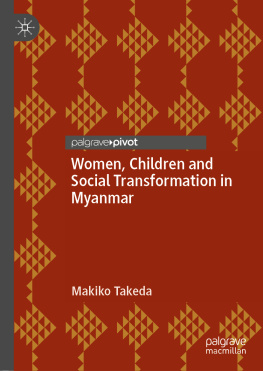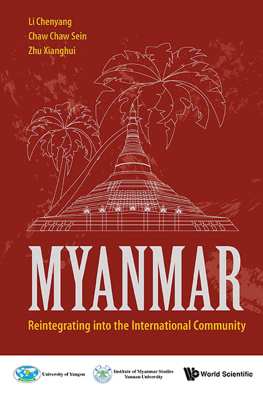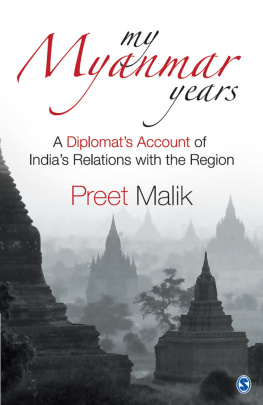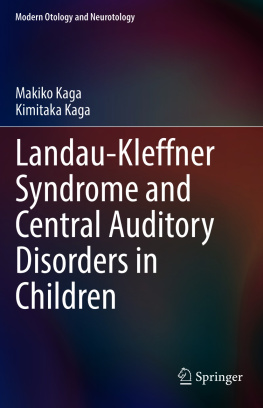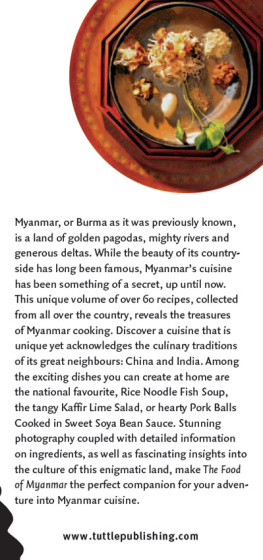Makiko Takeda - Women, Children and Social Transformation in Myanmar
Here you can read online Makiko Takeda - Women, Children and Social Transformation in Myanmar full text of the book (entire story) in english for free. Download pdf and epub, get meaning, cover and reviews about this ebook. year: 2020, publisher: Palgrave Macmillan, genre: Politics. Description of the work, (preface) as well as reviews are available. Best literature library LitArk.com created for fans of good reading and offers a wide selection of genres:
Romance novel
Science fiction
Adventure
Detective
Science
History
Home and family
Prose
Art
Politics
Computer
Non-fiction
Religion
Business
Children
Humor
Choose a favorite category and find really read worthwhile books. Enjoy immersion in the world of imagination, feel the emotions of the characters or learn something new for yourself, make an fascinating discovery.
- Book:Women, Children and Social Transformation in Myanmar
- Author:
- Publisher:Palgrave Macmillan
- Genre:
- Year:2020
- Rating:3 / 5
- Favourites:Add to favourites
- Your mark:
- 60
- 1
- 2
- 3
- 4
- 5
Women, Children and Social Transformation in Myanmar: summary, description and annotation
We offer to read an annotation, description, summary or preface (depends on what the author of the book "Women, Children and Social Transformation in Myanmar" wrote himself). If you haven't found the necessary information about the book — write in the comments, we will try to find it.
Women, Children and Social Transformation in Myanmar — read online for free the complete book (whole text) full work
Below is the text of the book, divided by pages. System saving the place of the last page read, allows you to conveniently read the book "Women, Children and Social Transformation in Myanmar" online for free, without having to search again every time where you left off. Put a bookmark, and you can go to the page where you finished reading at any time.
Font size:
Interval:
Bookmark:
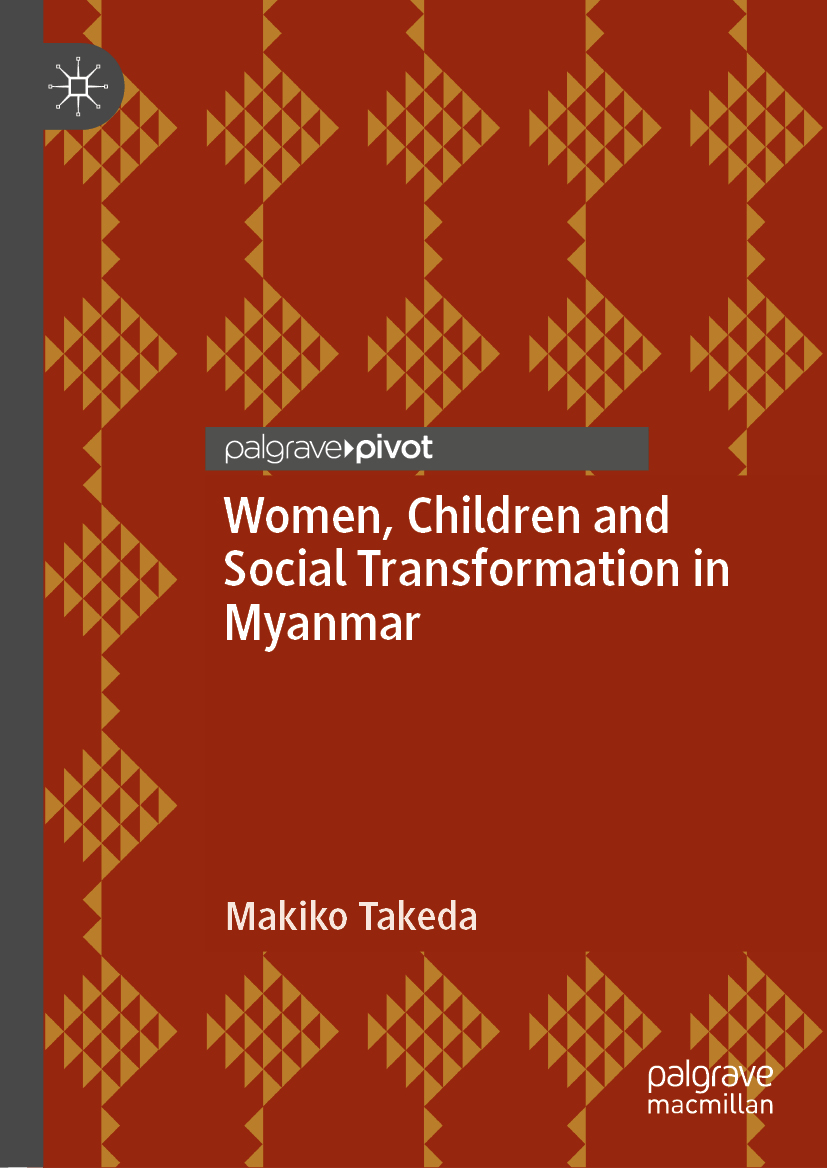

Cover illustration: Harvey Loake
This Palgrave Pivot imprint is published by the registered company Springer Nature Singapore Pte Ltd.
The registered company address is: 152 Beach Road, #21-01/04 Gateway East, Singapore 189721, Singapore
To those who are working on transformations of all kinds to make societies freer, communities more prosperous and individuals more empowered. Dedicating this work to the young and old women and children including students, who belong to all ethnic nationalities, believe in different religions and follow the chosen political ideologies and cultural practices in respecting their own values and safeguarding their identities to democratise the nation toward a genuine development benefitting all citizens. May your pursuit of just rights and good opportunities toward building an equal, stable and peaceful environment in Myanmar through her successful democratic transition prevail and never cease.
Makiko Takeda
September 2019
This book draws attention to the need for deep-seated social change in Myanmar if the countrys democratic transition and peace process are to deliver tangible benefits for those that have long faced profound vulnerability and marginalisation. Drawing upon detailed case studies, the author showcases a range of initiatives taking place in Myanmar aimed at strengthening womens and childrens rights, improving education provision, and promoting respect for ethnic, religious, and linguistic diversity, as well as the challenges these initiatives face, and the foundations still needed for a more equal and socially cohesive society. The timely and insightful analysis presented in this book will be of value to all those interested in better understanding the challenges facing Myanmar and other highly diverse, and divided, countries.
Myanmar has experienced one of the longest periods of internal conflicts and militarization for more than half a century, and it has greatly affected the country and its democratic transition. Myanmar is rated as 149 out of 168 of the most extremely vulnerable crisis-affected countries (UNFPA, 2016).It is one of the poorest countries in the region. 26% of the population lives below the poverty line. Prolonged militarization has had a considerable effect on the human rights of the people, media freedom as well as resource extraction. Even if militarization is not gendered, both men and women experience it differently in terms of their vulnerabilities, responses, and life chances together with institutions and culture. The outcomes of both natural and man-made disasterspoverty, violence, breakdown of the social, economic, and physical infrastructure, unemployment, lack of capacity, and failures in empowerment from social capital benefits (such as education, technology, and knowledge)tend to impact women more severely than men. Indeed, more than 75% of those in need of emergency assistance are likely to be women and children (UNFPA, 2016). Recently, INGOs have funded local NGOs to promote gender issues, but only in regards to women and womens rights. This has led to hostility and a marked resistance to change gender realities in Myanmar. There is a popular truism that Myanmar has no gender discrimination; thus, there is no need to demand rights. Yet it is this same culture that believes that men are born with higher spiritual status; thus, decision-making positions are reserved exclusively for men. Prolonged militarizationwhere patriarchal culture and masculine values have been promoted for decadesthat has affected gender power relations and cultural transformation has not been properly researched. Gender is also intertwined with race, class, education, and social status. However, the cultural components of gender power relations in humanitarian assistance are simply overlooked. Lack of meaningful gender-sensitive humanitarian planning can further entrench existing gender inequalities.
Today, Myanmars democratic transition is led by an acclaimed female politician, Aung San Suu Kyi. With the whole-hearted support of Burmese female activists, who were also former political prisoners for their political activism and fighting against human rights violation, the numbers of female representatives increased. Yet, even under such a prominent female leader, Burma continues to have one of the lowest female political representations, as approximately nine out of ten Burmese parliamentarians are men. Indeed, until recently, the NLD committee was an exclusive male members club similar to the military regime and monastic institutions, and even the first-ever serving female leader has experienced a prolonged attack on her personalities since she became involved in democratic movement.
A vast amount of research has indicated the connection between women and militarization. Militarization is an extreme form of patriarchy and purity with the concept of war. Democracy, which was considered under war-like situation, conceptualise state affairs as male affairs. Therefore, when a patriarchal institution is challenged by a female opposition leader, not only are women excluded but also they are often victimised, particularly by gendered-specific violence as we saw with how Aung San Suu Kyi had been attacked by the regime for her marriage to an Oxford Buddhist scholar.
Women are defined as a social and sexual category with distinct experience of violence. Indeed, the regime that holds opposing notions of us and them further creates double jeopardy for women in general and ethnic women in particular. Indeed since 1996, ethnic women have systemically recorded rape as weapons by the regime, particularly by the Shan womens Licence to Rape (SHAN, 2002) and School of Rape reports to the United Nations Security Council. Gender-specific violence towards women and young girls continued un-noticed, leading to the 2019 UN fact-finding mission on rape cases and embarrassing Myanmars Tatmadaw. While the world has focused rightly on Rohingya issues, it has neglected ethnic people in Myanmar including Rakhine, Shan, Kachin, and Karen, and others who have been fighting and experiencing prolong attacks on their communities. Women in these areas also particularly suffer under prolonged conflicts and discrimination of their citizenship and basic human rights to use their own local language, culture, and ways of life. There are reports of people losing their own mothers language, as they have to learn Burmese in school and work. After all, militarization is an extreme form of patriarchy and using violence maintains their superiority over those who are marginalised. Indeed, the militarization has affected institutional culture, break-down of social fabric, and worthless education also has affected cultural change, and the structural nature of violence, which has far more negative effects on women and children in general and ethnic areas in particular. Today rape is the second largest crime in Myanmar, involving more than 60% of under-age children. Indeed, one of the most infamous attacks on a girl, famed as Nursery rape caused one observer to state We dont see her photo on our social media. We dont read her real name in the papers. But the whole country is talking about her and the sickening crime (Beake, 2019).
Font size:
Interval:
Bookmark:
Similar books «Women, Children and Social Transformation in Myanmar»
Look at similar books to Women, Children and Social Transformation in Myanmar. We have selected literature similar in name and meaning in the hope of providing readers with more options to find new, interesting, not yet read works.
Discussion, reviews of the book Women, Children and Social Transformation in Myanmar and just readers' own opinions. Leave your comments, write what you think about the work, its meaning or the main characters. Specify what exactly you liked and what you didn't like, and why you think so.

